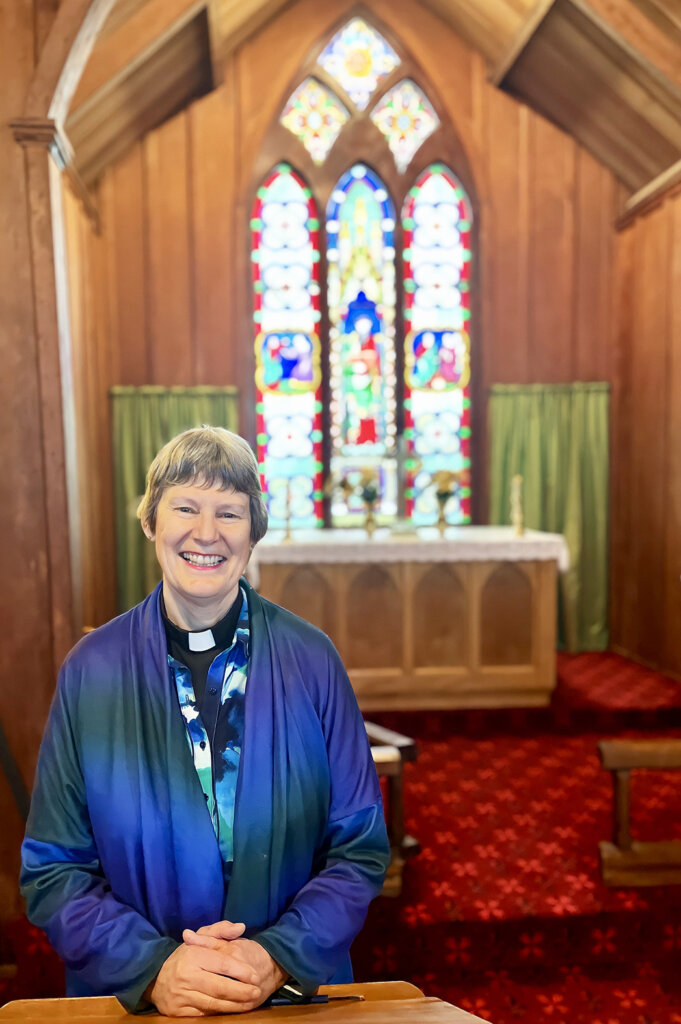This week our local news has been full of the wonderful successes of our athletes at the Olympic games. I’m guessing more than one of us has basked in their glory.
As well as that, our Waipā area has also produced the winner of the Lexus Song contest, Katie Trigg. Congratulations to Katie and all our athletes.

Reverend Julie Guest at St Paul’s Church on Rangiaowhia Rd.
Whenever someone wins at a mammoth task like that, we know that the winner is hard working, determined, focussed and able to keep going in the face of adversity.
As Christine wrote last week, we also know they haven’t got there alone.
There has been a dedicated and determined team behind them, right from the beginning – a parent to transport and finance, a teacher to encourage, a coach or tutor recognising and enabling talent to develop.
On the other hand, week after week we also read in our local papers of those who are at the other end of our admiration scale; those who are inflicting abuse on family, those who are embroiled in family violence. Just as there are teams of supporters and teachers for winners, so there are demonstrators and shapers of violence. Young people who grow up in homes where violence is the norm can’t help but learn a way of life that is hard to break out of.
It is also life-limiting because these children are unlikely to have parents who can support their interests, who can transport them to rehearsals.
Even if they catch the eye of a teacher or coach, the family is likely to move from school to school and miss opportunities to develop under the coach who might nurture them.
When any member of our community cannot develop to their potential, we all miss out.
When so many of our community are in situations where they feel unsafe enough that police need to be called, our whole community is unwell.
The Bible tells us that each of us is wonderfully created, each of us divinely loved.
Jesus is absolutely clear that we are to do for others what we would want done for ourselves.
New Zealand community was formed with these Christian beliefs as a basis. But we have moved from an understanding of collective well-being, to one that focusses on individual well-being and in doing so we have overlooked the suffering of people who are our neighbours.
We have allowed agencies to take the responsibility that is ours as well. We have chosen not to see.
Whilst we celebrate with the stars, can we also open our eyes to the truth in our own neighbourhood?
As a community we can create teams of supporters for artists and sportspeople – all so that the one person can shine.
Teams that work to support and encourage full human flourishing do exist in Te Awamutu, but most are struggling.
What might happen if this community showed the same determination for well-being for all its residents, as it does for sporting success of a few?









